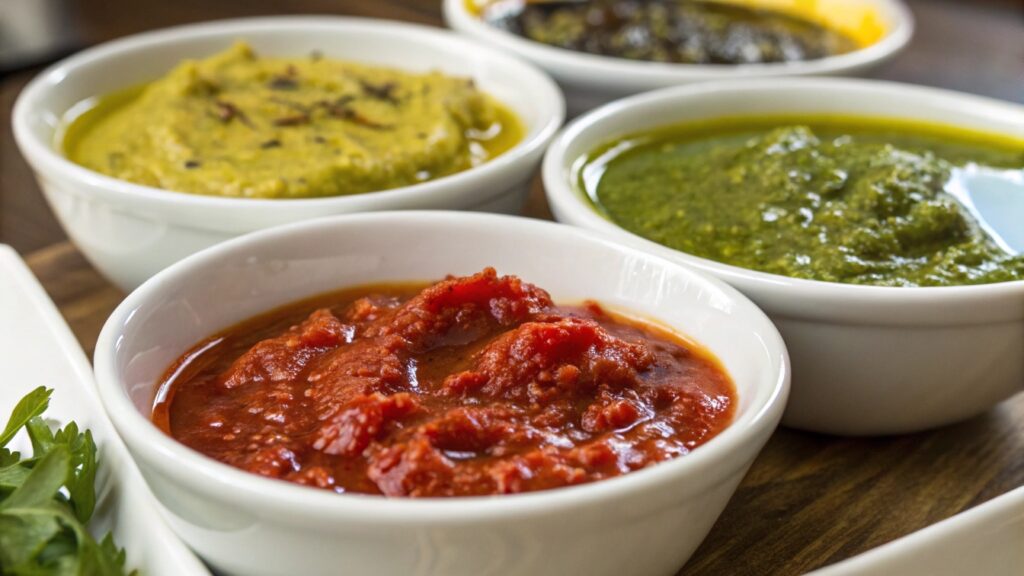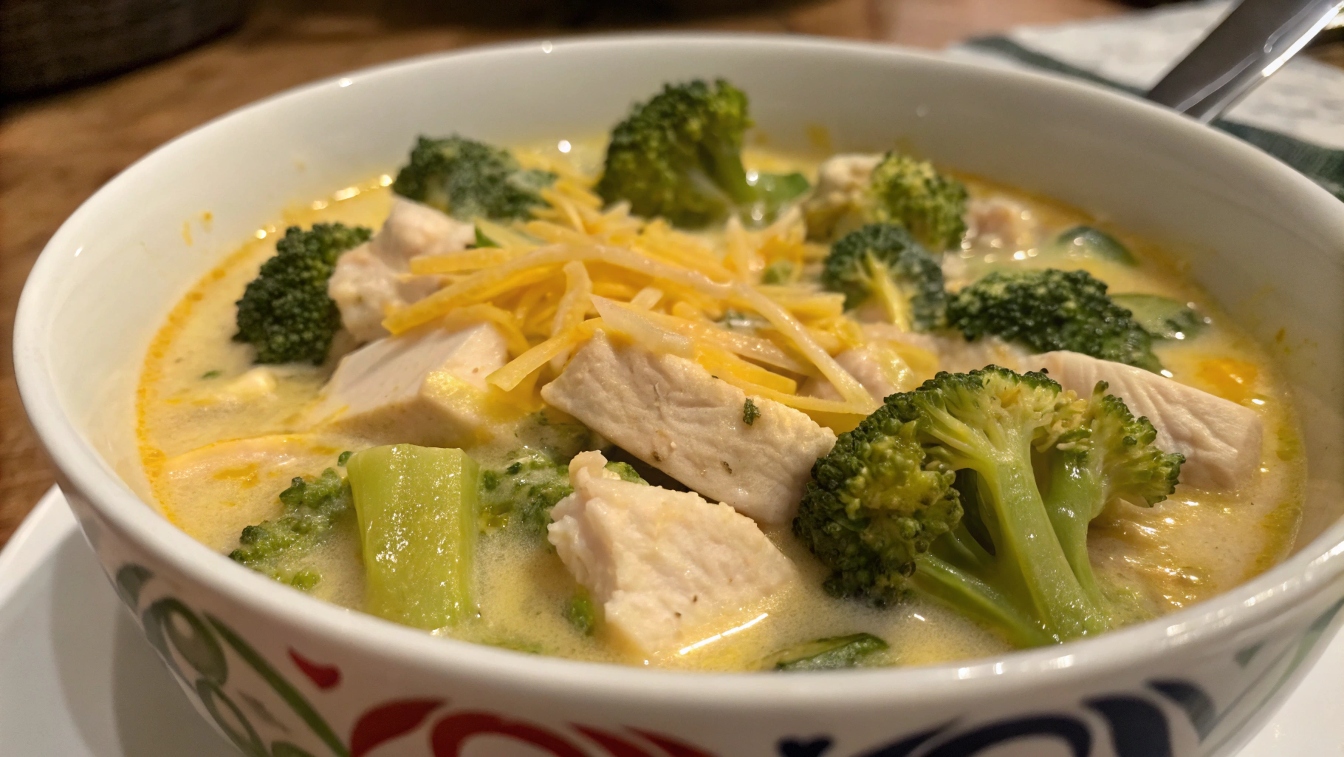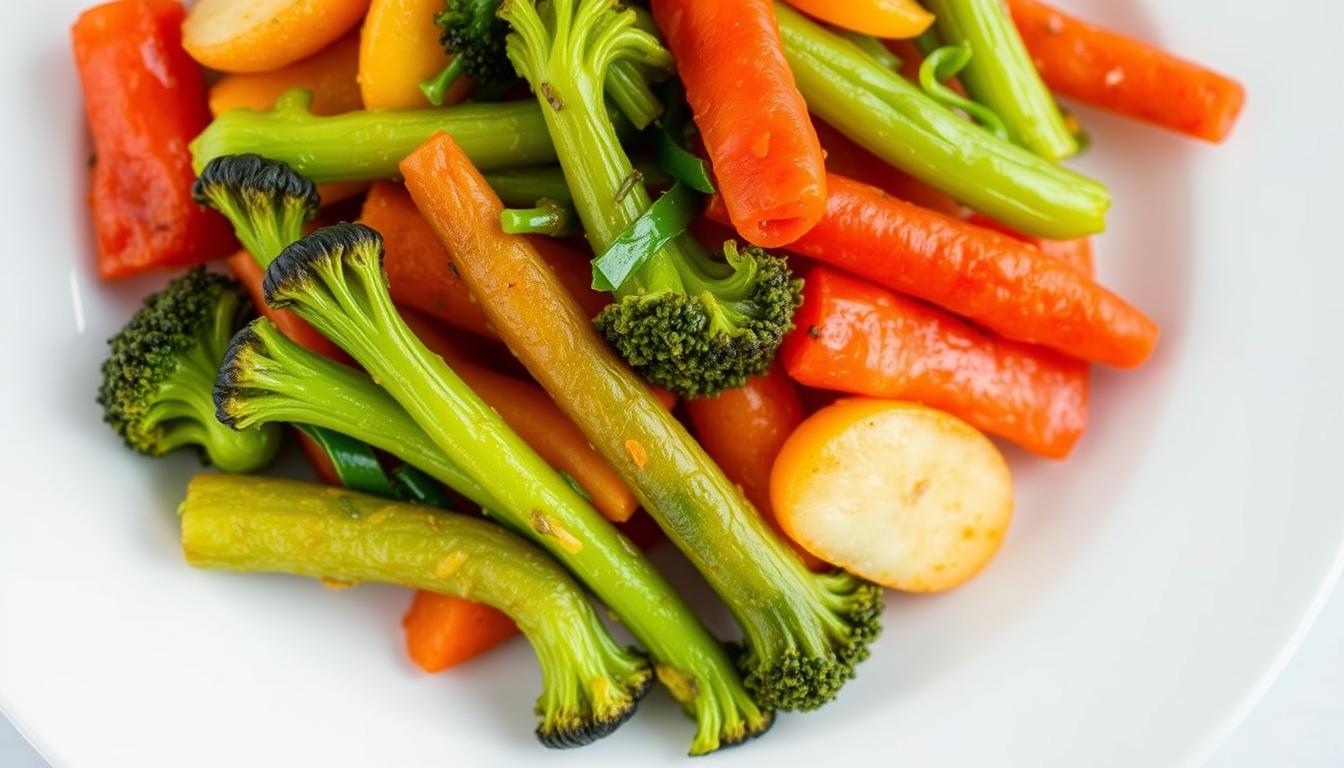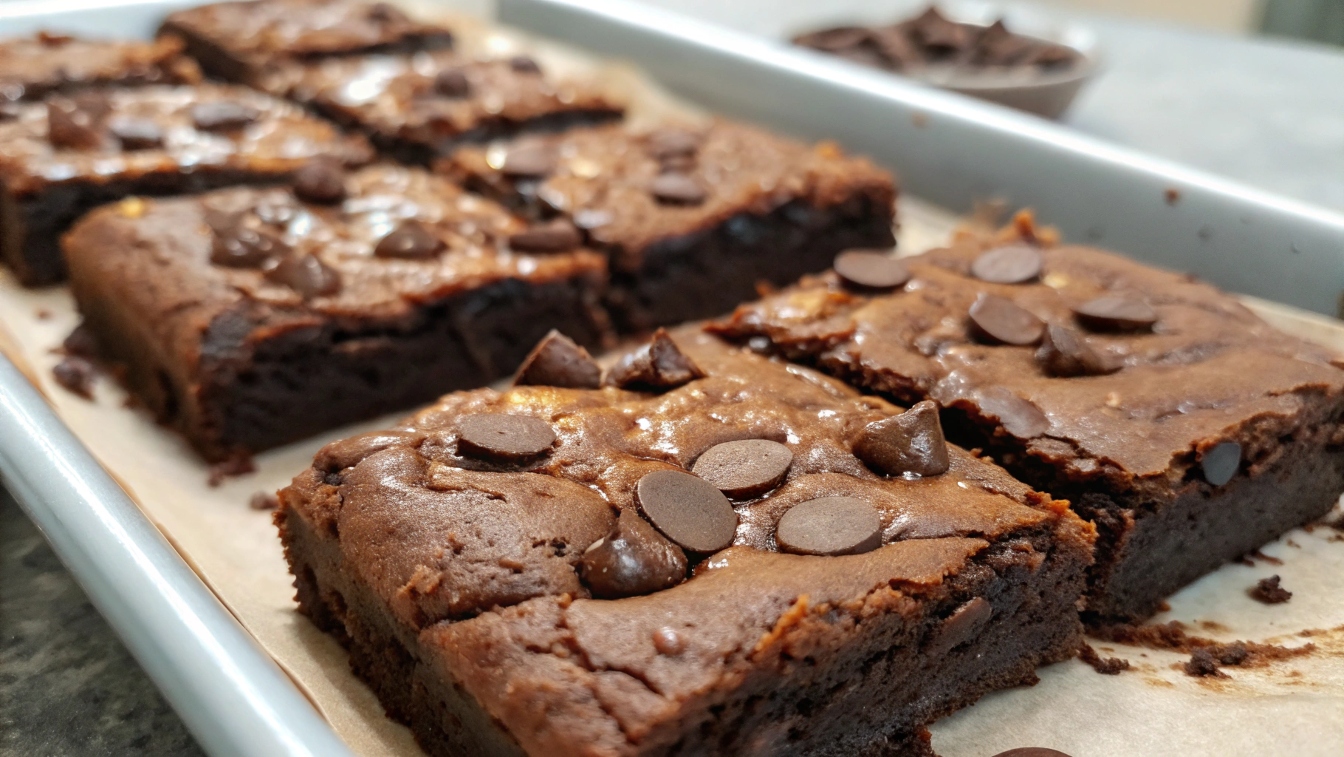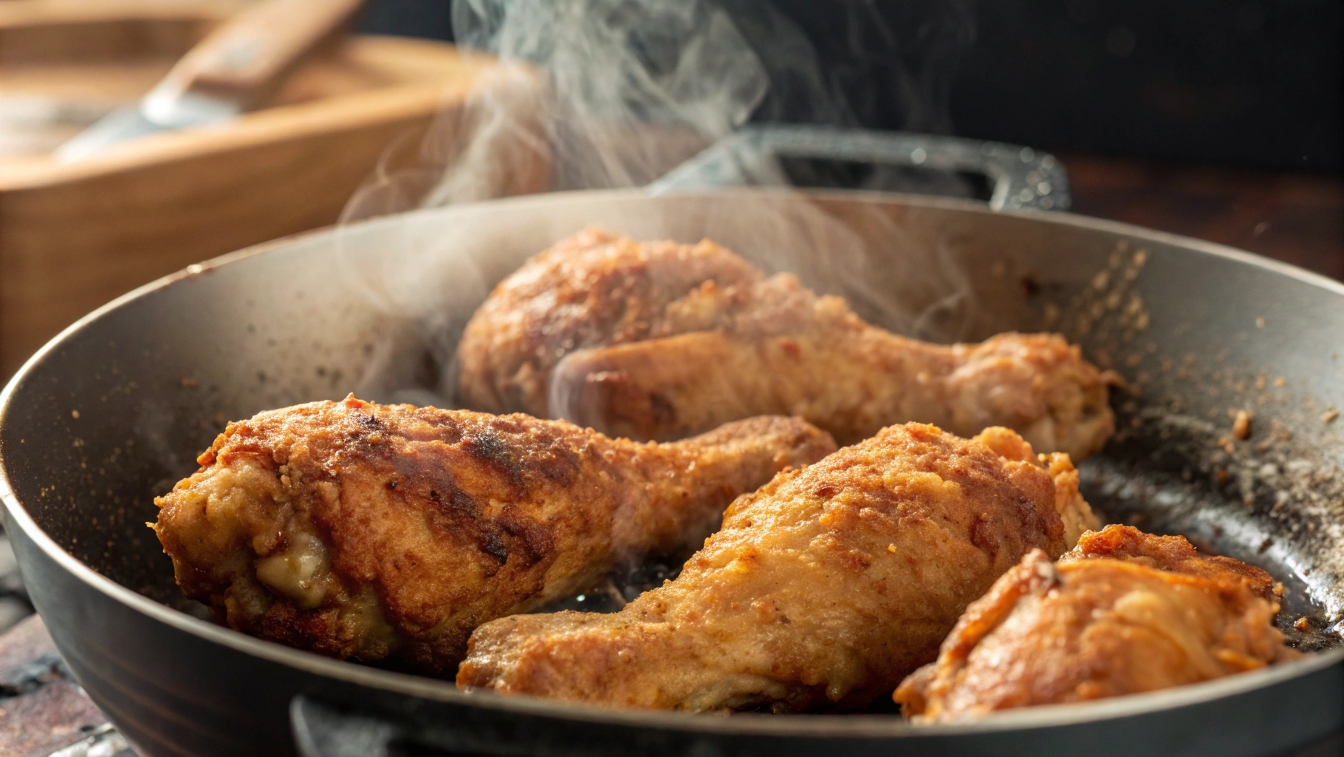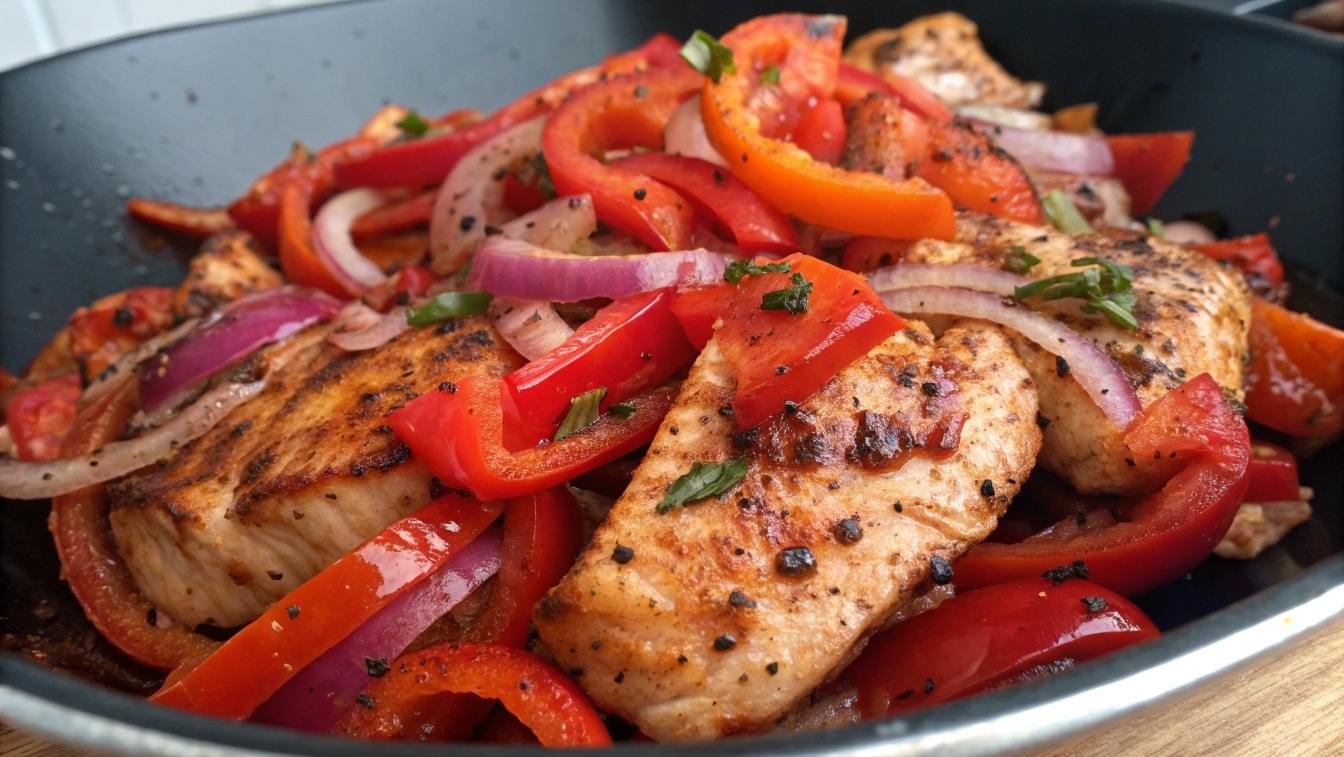Imagine yourself in a sunny Mediterranean kitchen. Here, flavors burst and traditions shine. Mediterranean sauces are more than toppings. They open a door to amazing food experiences that make simple meals special.
Each sauce has a story of culture and tradition. It mixes old techniques with fresh ingredients. Whether you love cooking at home or exploring new tastes, these sauces are a fun journey.
This guide will take you into the world of Mediterranean sauces. You’ll learn about tzatziki from Greece and rich, flavorful sauces. You’ll see how these can make your cooking better.
Ready to learn about making Mediterranean sauces? We’ll share real recipes, how to pick ingredients, and cooking tips. Your kitchen will become a Mediterranean paradise. Your taste buds are in for a treat!
Table of Contents
Understanding the Rich History of Mediterranean Sauces
Mediterranean sauce recipes have a long history. They tell stories of culture, innovation, and flavor. These sauces are more than just condiments. They are historical artifacts that show the region’s rich food heritage.
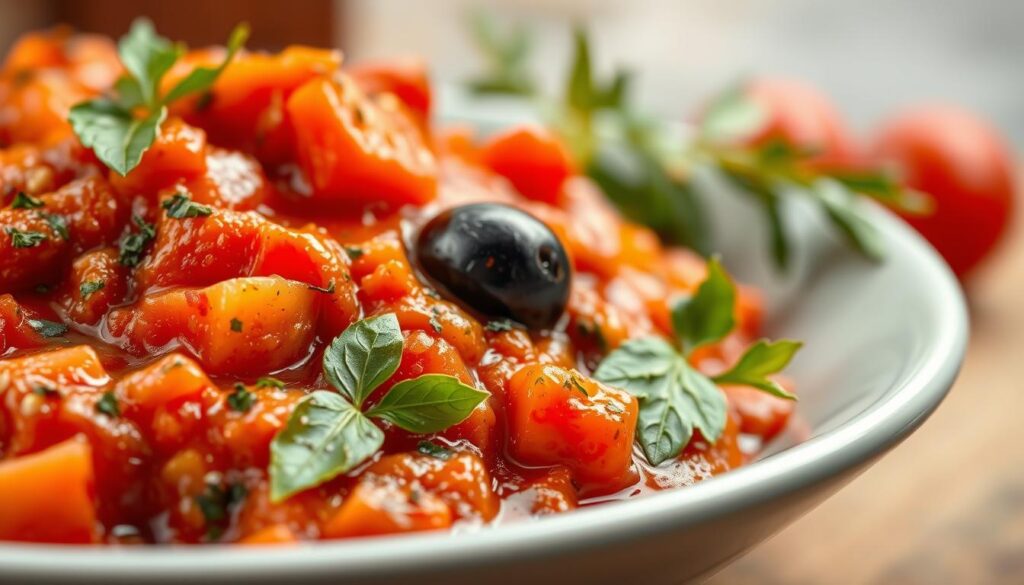
Origins of Mediterranean Sauce Making
The art of making Mediterranean sauces goes back thousands of years. It started in ancient times around the Mediterranean Sea. People used simple ingredients to create complex flavors.
- Ancient Romans were the first to use advanced sauce-making techniques.
- Olive oil became a key ingredient in many Mediterranean dishes.
- Spice trade routes brought new flavors and ways to cook.
Cultural Significance in Mediterranean Cuisine
Sauces in Mediterranean cultures mean more than just food. They show hospitality, tradition, and community. Each area has its own sauce recipes, using local ingredients and traditions.
“A sauce tells a story of its land, its people, and their culinary journey.”
Evolution of Traditional Recipes
Mediterranean sauce recipes have changed over time. They’ve adapted to new ingredients and cooking methods. These sauces show the power of culinary tradition.
| Era | Sauce Development | Key Characteristics |
|---|---|---|
| Ancient Period | Simple herbal blends | Limited ingredients, local herbs |
| Medieval Period | Spice integration | Trade route influences |
| Renaissance | Refined techniques | Sophisticated flavor combinations |
| Modern Era | Global fusion | Innovative ingredient pairings |
Learning about these historical contexts helps us see Mediterranean sauces as more than just condiments. They are culinary masterpieces that carry generations of wisdom.
Essential Ingredients for Mediterranean Sauce Making
Making a real mediterranean sauce needs fresh, top-quality ingredients. Start your journey by knowing the main parts that make these dishes special.
The base of a great Mediterranean dressing is top ingredients. Let’s look at the key parts that make simple things taste amazing:
- Olive Oil: The liquid gold of mediterranean cuisine, providing richness and depth
- Fresh herbs like basil, parsley, and mint
- Aromatic spices including cumin, coriander, and paprika
- Garlic – the universal flavor enhancer
- Citrus elements like lemon juice
Harissa, a famous mediterranean sauce from Tunisia, is a great example. It’s made with:
- 10-12 dried red chilies
- 4 garlic cloves
- 1 teaspoon each of cumin, coriander, and caraway seeds
- 2 tablespoons of high-quality olive oil
- 1 tablespoon of fresh lemon juice
“The secret to an exceptional mediterranean sauce lies not just in the ingredients, but in the passion you bring to their preparation.” – Mediterranean Culinary Wisdom
Don’t just stick to old recipes. Try adding Greek yogurt, tahini, and roasted peppers. They can make your dishes even better.
Classic Mediterranean Sauce Recipes You Need to Know
Explore delicious mediterranean sauce recipes that will change your cooking. These classic sauces are more than just toppings. They open the door to real Mediterranean tastes that make any dish better.
Get ready to learn about four famous mediterranean sauce recipes. They will become key ingredients in your kitchen. Each sauce has its own special taste and can make your meals amazing.
Traditional Tzatziki Sauce
A creamy and cool mediterranean sauce from Greek cuisine. Here’s what you need:
- 2 cups Greek yogurt
- 1 medium cucumber, grated
- 1 tablespoon fresh dill, chopped
- 1 tablespoon minced garlic
- 1 tablespoon extra virgin olive oil
- Red wine vinegar to taste
Pro tip: Chill the tzatziki for at least 30 minutes for the best taste. It’s great with grilled meats and fresh veggies.
Authentic Hummus
This smooth and rich mediterranean sauce is loved by all. It goes well with almost anything:
- 1 can chickpeas, drained
- 1/4 cup tahini
- 2 garlic cloves
- Lemon juice
- Olive oil
- Salt and pepper
Classic Tahini Sauce
A versatile mediterranean sauce that adds a nutty flavor. Just mix tahini with lemon juice, garlic, and water until smooth.
Creamy Baba Ganoush
This smoky eggplant-based mediterranean sauce is full of flavor. Roast eggplant, then blend with tahini, garlic, and lemon juice for a creamy taste.
“These sauces are more than recipes – they’re culinary traditions passed down through generations.”
Each mediterranean sauce recipe brings a unique taste of Mediterranean cuisine. Try them, adjust to your liking, and enjoy the flavor journey!
Mastering the Mediterranean Green Sauce
Green sauces add fresh flavors to your cooking. The Mediterranean green sauce is a tasty condiment. It makes simple meals special.
Discovering Mediterranean green sauce is exciting. It combines herbs, spices, and traditions in a unique way.
Key Herbs and Ingredients
To make a real Mediterranean green sauce, pick the right ingredients:
- Fresh parsley
- Cilantro leaves
- Mint
- Garlic
- Extra virgin olive oil
- Lemon juice
Step-by-Step Preparation Guide
- Wash and dry herbs well
- Chop herbs finely
- Mince garlic
- Put ingredients in a food processor
- Blend until smooth
- Adjust seasoning as needed
Variations and Adaptations
Mediterranean green sauce is very flexible. Each region has its own twist:
| Region | Unique Ingredient | Flavor Profile |
|---|---|---|
| Morocco | Preserved Lemons | Tangy and Bright |
| Spain | Roasted Peppers | Smoky and Rich |
| Greece | Feta Cheese | Creamy and Salty |
“A great Mediterranean green sauce is like a symphony of herbs – each ingredient plays a crucial role in creating harmony.” – Mediterranean Chef
Try new things with your Mediterranean green sauce. Change herbs, add spices, or use unique ingredients to match your taste.
Quick and Easy Mediterranean Sauce Recipes for Busy Weeknights
Don’t spend hours in the kitchen on weeknights. These quick mediterranean sauce recipes add flavor fast. Discover sauces that bring the Mediterranean to your table quickly.
Lightning-Fast Mediterranean Sauce Options
- Garlic Aioli (5-minute preparation)
- Speedy Romesco Sauce
- Yogurt-Based Drizzling Sauce
Even busy schedules can enjoy great taste. Each sauce is packed with flavor and quick to make.
Rapid Sauce Preparation Guide
| Sauce Name | Prep Time | Key Ingredients |
|---|---|---|
| Garlic Aioli | 5 minutes | Garlic, olive oil, lemon juice |
| Romesco Sauce | 10 minutes | Roasted red peppers, almonds, garlic |
| Yogurt Sauce | 3 minutes | Greek yogurt, herbs, lemon zest |
“Great cooking is about ingredients and how to prepare them.” – Wolfgang Puck
These mediterranean sauce recipes are your secret to quick, tasty meals. With a few pantry items, you can make any dish Mediterranean-inspired.
Pro Tips for Quick Sauce Making
- Always have fresh herbs on hand
- Keep staple ingredients like olive oil and garlic ready
- Use a blender or food processor for faster mixing
No more stress about complicated cooking. These mediterranean sauce recipes show that delicious meals can be simple, fast, and satisfying.
Pairing Your Mediterranean Sauces with Different Dishes
Discovering the perfect Mediterranean sauce pairing can turn a simple meal into a feast. Each sauce has its own flavor that goes well with different foods. This creates tasty and balanced dishes.
Let’s look at how to match your homemade mediterranean sauces with various dishes. This will make your meals even better.
Meat and Poultry Pairings
Mediterranean sauces are amazing with grilled meats and poultry. Here are some great pairings:
- Tzatziki with grilled chicken kebabs
- Harissa sauce drizzled over lamb meatballs
- Tahini sauce accompanying roasted beef skewers
Vegetarian Options
Vegetarian dishes can be amazing with the right mediterranean sauce. Try these pairings:
- Hummus spread on roasted vegetable platters
- Baba ganoush as a dip for falafel
- Green herb sauce over grain bowls
Seafood Combinations
Seafood lovers can make their dishes even better with zesty mediterranean sauces:
- Aioli with grilled shrimp skewers
- Citrus-infused green sauce over baked fish
- Tahini drizzle on pan-seared calamari
Pro tip: Always taste and adjust your sauce to complement the primary ingredients!
Remember, the secret to perfect mediterranean sauce pairings is to experiment. Find the flavor combinations you love.
Storage Tips and Shelf Life of Mediterranean Sauces
Keeping your homemade mediterranean sauce fresh is key. Smart storage helps keep the flavors alive. Knowing how to store your sauces right can make them last longer and taste better.
Each mediterranean sauce needs its own storage plan. Here are some important tips to keep your sauces in top shape:
- Refrigerate dairy-based mediterranean sauces like tzatziki within 2 hours of making them
- Put them in airtight containers to stop flavors from mixing
- Use clean tools when taking out sauce to avoid germs
- Mark containers with when you made them for easy tracking
How long a sauce lasts depends on its ingredients. Creamy sauces usually last 7-10 days. Oil-based sauces can stay fresh for up to two weeks if stored right.
“Proper storage is the secret to maintaining the vibrant flavors of mediterranean sauces” – Culinary Experts
Keeping your fridge organized is important for sauce freshness. Here are some tips:
- Put sauces in the main fridge area
- Keep the fridge at a temperature below 40°F
- Don’t store sauces in the fridge door where it’s warmer
Freezing isn’t good for all sauces. Dairy-based sauces like tzatziki might get watery when frozen. Oil-based sauces can freeze well but might need stirring after thawing.
By using these storage tips, your homemade mediterranean sauces will stay fresh and tasty. They’ll be ready to make your next meal even better.
Common Mistakes to Avoid When Making Mediterranean Sauces
Making the perfect Mediterranean sauce needs care and precision. Many home cooks make mistakes that ruin the flavor and texture. Knowing these common errors can help you make better Mediterranean dishes.
Ingredient Selection Errors
Choosing the right ingredients is key for a true Mediterranean sauce. Chefs warn against these common mistakes:
- Using low-quality olive oil instead of extra virgin olive oil
- Substituting dried herbs for fresh herbs
- Selecting incorrect yogurt types for specific sauces
Preparation Pitfalls
Right technique is vital for your sauce. Be careful of these mistakes:
- Over-blending hummus, which can create a gummy texture
- Not draining cucumber properly for tzatziki
- Incorrect mixing techniques that destroy sauce consistency
Storage Mistakes
Storing your sauce right is important. Avoid these common errors:
| Mistake | Consequence |
|---|---|
| Storing in unsealed containers | Loss of flavor and potential spoilage |
| Keeping at incorrect temperature | Reduced sauce quality |
| Storing too long | Degraded taste and texture |
“Perfecting a mediterranean sauce recipe is an art that requires patience and practice.” – Mediterranean Culinary Expert
Pro tip: Always taste and adjust your sauce before serving, and remember that practice makes perfect!
Health Benefits of Homemade Mediterranean Sauces
Explore the world of mediterranean sauce. These tasty condiments are more than just flavor. They’re packed with nutrients that can change your diet for the better.
Nutritional Powerhouse
Every mediterranean sauce has its own health benefits. Tzatziki, for instance, is a protein powerhouse. It has about 10 grams of protein per 100 grams, helping your muscles and keeping you full.
- Rich in probiotics that support gut health
- Contains heart-healthy ingredients like olive oil
- Provides essential vitamins and minerals
- Low in calories compared to many store-bought sauces
Dietary Considerations
Mediterranean sauces are great for any diet. They work well for vegetarians, vegans, and those who follow a gluten-free diet. These sauces can be easily made to fit your dietary needs.
“Food is not just fuel, it’s information. It talks to your DNA and tells it what to do.” – Dr. Mark Hyman
The mediterranean sauce way of cooking uses fresh, whole ingredients. This approach offers the most nutritional benefits. Ingredients like olive oil and yogurt are not just for flavor. They’re key to better health.
Key Health Insights
| Ingredient | Health Benefit | Nutritional Impact |
|---|---|---|
| Greek Yogurt | Probiotic Support | Up to 10g protein per serving |
| Olive Oil | Heart Health | Reduces cardiovascular risk |
| Fresh Herbs | Antioxidant Protection | Supports immune system |
By making your own mediterranean sauces, you’re not just improving your meals. You’re investing in your health and well-being.
Modern Twists on Traditional Mediterranean Sauce Recipes
Make your mediterranean sauce recipe collection exciting with new ideas. Mediterranean cuisine is full of chances to try new things while keeping old favorites.
Check out these cool modern twists for traditional mediterranean sauce recipes:
- Roasted Beet Hummus: A vibrant purple dip that combines classic chickpea base with earthy roasted beets
- Saffron-Infused Aioli: Traditional garlic mayonnaise enhanced with luxurious saffron threads
- Harissa-Miso Fusion Sauce: Blending North African and Japanese flavor profiles
- Truffle-Infused Tahini: Adding luxurious mushroom notes to the classic sesame sauce
Start your mediterranean sauce recipe journey. Turn simple ingredients into amazing dishes. Try these new ways to cook:
“Cooking is an art, and Mediterranean sauces are your canvas for delicious creativity.”
For great modern mediterranean sauce recipes, mix old ways with new ingredients. Try new flavor mixes that keep Mediterranean cooking true.
| Classic Base | Modern Twist | Flavor Profile |
|---|---|---|
| Tzatziki | Smoky Roasted Pepper Tzatziki | Creamy, Spicy, Smoky |
| Hummus | Beetroot & Walnut Hummus | Earthy, Nutty, Vibrant |
| Tahini | Maple-Sriracha Tahini | Sweet, Spicy, Rich |
Remember, the best mediterranean sauce recipes come from trying new things. Your kitchen is a place for tasty discoveries!
Conclusion: Mastering the Art of Mediterranean Sauce Making
You’ve learned a lot about making Mediterranean sauces. You now know their history and the ingredients used. This knowledge can make any meal special.
Mediterranean sauces mix tradition and creativity. You’ve learned how to balance herbs and choose the best ingredients. This makes your cooking better and more like a restaurant’s.
Great cooking comes from passion and always learning. Keep practicing and trying new things. Your skills will make your meals delicious and full of Mediterranean flavors.
Your cooking journey is just starting. Keep exploring and enjoying Mediterranean sauces. Your home cooking will become a wonderful experience.

